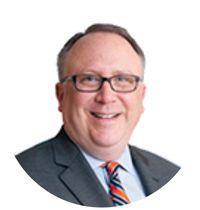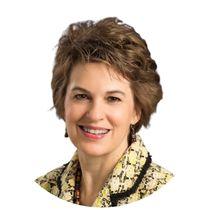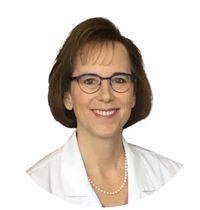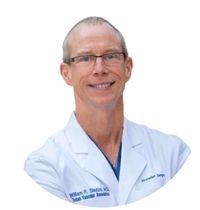SVS Town Hall: An Evening With the Nominating Committee
Join Us on May 23 at 7 p.m. CDT
Join the SVS Nominating Committee for an important Town Hall where you will meet the candidates for SVS Vice President and Secretary. During the event, the Nominating Committee will ask each candidate questions to help members get to know those who are running for office. Don't miss your chance to hear these candidates' perspectives on important topics pertaining to the Society and the Specialty.
Don't forget to submit your candidate questions by May 19, 2022.
Get to Know the Candidates
SVS Vice President Candidates
| Matthew Eagleton, MD, DFSVS Read Dr. Eagleton's bio. |
Amy Reed, MD, DFSVS Read Dr. Reed's bio. |

|

|
SVS Secretary Candidates
|
Kellie Brown, MD, DFSVS |
William Shutze, MD, DFSVS Read Dr. Shutze's bio. |

|

|
Candidate Q&A
Each of the candidates was asked to answer 3 questions during the application process. Below are the candidate responses to the first question. Responses to the remaining two questions will follow in subsequent notices.
Question 1: What do you see as the most important strategic/organizational issue facing the SVS and how should the SVS address it over the next five years?
Matthew Eagleton, MD, DFSVS Answer:
The greatest issue facing the SVS over the next 5 years is member engagement. This is necessary for its efforts to support its membership in providing optimal vascular care. This mission is multi-faceted with no clear paramount mandate, and as we have observed over the past few years the immediate priority can change rapidly. Even during these shifts, the SVS must maintain an investment in all of its interests in order to maintain a strong base. Given its multifarious nature, it is imperative we continue to understand the varied needs and expectations of our fellowship to assist them in providing care. We must continue to recruit feedback and solicit new ideas from a wide array of members, taking advantage of content experts. Equally important, we must expand educational opportunities for the younger members, developing content experts and future leaders. We must provide continued communication about the society’s accomplishments and future directions. The SVS must remain flexible and deftly respond to changes in the clinical, economic, and political environment that affect our patients and members. The SVS is the primary ambassador of vascular providers, and it must continue to position itself as the leader directing the future of vascular care.
Amy Reed, MD, DFSVS Answer:
I believe that the most important issue facing the SVS is that of speaking with one unified Vascular voice. The work that remains in this area is evidenced by commentary from those in various different fractions of the SVS who don't feel heard, and don't feel represented. A unified front helps the SVS effectively undertake all of the other important issues we face - decreased reimbursement, appropriate use of our procedures, diversity, branding, communication, etc. Without a unified front, I believe we will not be as successful as we can be. To achieve one voice requires investment in time and engagement by SVS leadership - something I would commit to doing. I would charge the SVS Vice President position to sit in on the various section meetings - Community Practice, Women's, Young Surgeons - as well as Asian Vascular Surgeon Society and Black Vascular Surgeon Society - to hear directly from them what they feel the SVS can do to help and promote them110%. I believe only through diverse inclusion will we be able to fully advance as a Society.
Kellie Brown, MD, DFSVS Answer:
The most important strategic issue facing the specialty of vascular surgery in the next 5 years is the recruitment and retention of our workforce. The average age of current vascular surgeons is over 50, and many are planning to retire early. Burnout is rampant, and it is difficult to recruit young medical students and residents because they are intimidated by the number of hours the average vascular surgeon works. SVS can help with these issues by putting forth meaningful interventions for burnout, continuing to lobby Washington for changes in billing and coding, helping to further develop the identity of vascular surgery as a unique and valuable specialty, and by coordinating and assisting the ongoing recruitment efforts being done by so many of our members. In addition, SVS can help foster interest in vascular surgery with outreach to medical students and surgery residents, with information, interest groups, education and simulation. The pandemic changed our landscape, and how much of this work is accomplished has changed with the overwhelming adoption of online technology, such that the SVS has the ability to reach out to many diverse groups of stakeholders with customized content more easily.
William Shutze, MD, DFSVS Answer:
The best time to manage a crisis is before it happens. This is clearly evident by the vision demonstrated by the SVS Leaders to create a diversity and inclusion task force well in advance of the events in 2020. Our country and the world are undergoing a social transformation that is unprecedented. Long-simmering injustices, disparities and inequalities are now central and foremost in the media and in our lives. Where does the SVS stand on these issues as well as others that will be forthcoming in the next few years? If the SVS does accept the Social Justice challenge, how will we avoid "mission creep"? Should the SVS focus only on its mission and core values without responding to or commenting on social justice issues? Remaining silent can divide us but our responses have the potential to divide us as well. As a small society, we need to pull together. While dissent and disagreement can be healthy, divisiveness can be fatal for us all. I suggest the SVS create a task force examining our role or absence thereof in the arena of Social Justice with the mandate to be faithful to our mission and core values, to unite not divide us, and add value to SVS membership. I believe that the finds and recommendations of this TF will synergize nicely with the SVS population health and SVS Foundation VISTA programs, better position us in advance of the next "crisis" and promote healthy, constructive, healing dialogue among our members.
Question 2: Given the growing diversity of the SVS membership, how will you ensure
all constituents of the SVS are represented and have a voice in the Society?
Matthew Eagleton, MD, DFSVS Answer:
Fostering diversity comes from having awareness of the issues and taking deliberate actions to foster inclusiveness. As a woman who trained in vascular surgery before women surgeons were common, I have a keen awareness of diversity issues. I have functioned as a role model and mentor to women and minority surgeons throughout my career. I have made it a habit in my leadership roles to try to understand the diverse viewpoints and needs of my constituents. My ability to be inclusive is why I have risen to the many leadership positions I have. In my role as SVS Secretary, I will engage in outreach to and communication with the many diverse members of the SVS, and will actively engage their input. Frankly, my presence in the executive leadership of the SVS will improve diversity, and by virtue of my role I will be able to influence others to strive for and achieve leadership within the SVS. I believe the SVS has made great strides in recognizing our lack of diversity, particularly in senior leadership positions, but there is still work to be done. I will be a voice of reasoned thoughtfulness to advocate for all types of diversity at every level of the SVS.
Amy Reed, MD, DFSVS Answer:
As current Secretary and diverse member of the SVS, I see and appreciate all that the SVS is doing to grow and promote diversity. As Vice President, I will continue to ensure this important work moves forward. Doing so requires intentionality and commitment to diversity at every step, every committee, every appointment. I will ensure that requests for volunteers go out to membership for positions, as opposed to just thinking what male, female, bipoc comes to top of mind, so that all constituents have an opportunity. Calling on the leadership of Young Surgeons, Community Practice, Women's sections, DEI committee, and Black and Asian Vascular Surgeon Societies, I believe will help in continuing to foster DEI in the SVS. One leader in the SVS can not know everything. It is critically important to engage with all of these various groups to go forth as a team. That engagement to me means regularly checking in with these groups to understand their concerns. The SVS executive leadership team must remain in close contact with the Communication committee to be aware of any issues or malcontent that can be headed off and managed in a productive way for the society. I would continue to "scan the vascular horizon" on a daily basis in order to be on top of any issues that might arise.
Kellie Brown, MD, DFSVS Answer:
Fostering diversity comes from having awareness of the issues, and taking deliberate actions to foster inclusiveness. As a woman who trained in vascular surgery before women surgeons were common, I have a keen awareness of diversity issues. I have functioned as a role model and mentor to women and minority surgeons throughout my career. I have made it a habit in my leadership roles to try to understand the diverse
viewpoints and needs of my constituents. My ability to be inclusive is why I have risen to the many leadership positions I have. In my role as SVS Secretary, I will engage in outreach to and communication with the many diverse members of the SVS, and will actively engage their input. Frankly, my presence in the executive leadership of the SVS will improve diversity, and by virtue of my role I will be able to influence others to strive for and achieve leadership within the SVS. I believe the SVS has made great strides in recognizing our lack of diversity, particularly in senior leadership positions, but there is still work to be done. I will be a voice of reasoned thoughtfulness to advocate for all types of diversity at every level of the SVS.
William Shutze, MD, DFSVS Answer:
For the SVS to be achieve maximal member engagement all members must be represented and be heard. This requires successful communication. The SVS must maintain healthy and constructive communications from its members and to its members. Communication must be bi-directional, respectful, positive, safe and inclusive. I will work to ensure that all members feel empowered and comfortable in their communications with the Society through the multiple and increasing mechanisms
and forums the Society uses by exhibiting and promoting these principles. As SVS Secretary and Chair of the Communications Committee I will ensure that each meeting begins with this topic as the first point
of discussion. I will promote and encourage the engagement of candidate members, under-
represented and younger Surgeons (who may feel intimidated, unsafe or insecure in voicing their
concerns or opinions) through dedicated channels created for them.
I will work to increase the flow of communication from all of the SVS members on a regular basis to understand their issues in real time rather than relying on intermittent surveys and town halls. To accomplish this I will work to increase our presence and activity on the current and future social media platforms. "The Society for, Vascular Surgery Best Practice Recommendations for Use of Social Media" is an excellent roadmap for successfully navigating the challenges of social media but unfortunately missteps occur and I will encourage leadership to acknowledge these with the promise to learn and improve validating our goal to be a safe "home" for all.
Candidate Bios
SVS Vice President
Matthew Eagleton, MD, DFSVS
Dr. Matthew Eagleton is the Chief of the Division of Vascular and Endovascular Surgery at the Massachusetts General Hospital (MGH) and the Robert R. Linton, MD Professor of Surgery at Harvard Medical School. He presently serves as the Co-Director of the MGH Fireman Vascular Center and Co-Director of the MGH Thoracic Aortic Center, leading colleagues from Cardiology, Cardiac surgery, and Vascular surgery to optimize aortic care and research at a large tertiary institution.
Dr. Eagleton completed his undergraduate education, medical training, and general surgery residency at the University of Rochester. He completed his vascular surgery fellowship at the University of Michigan and a dedicated endovascular fellowship at the Cleveland Clinic, where he was subsequently on staff for over a decade. While on faculty at the Cleveland Clinic, Dr. Eagleton served as Vice-Chair of Research and Education in the Department of Vascular Surgery and was the Program Director for the Integrated Residency Program, the Vascular Surgery Fellowship Program, Cleveland Clinic Aortic Fellowship, and Cleveland Clinic Endovascular Fellowship. Dr. Eagleton also served in the United States Army Reserve and had the privilege of providing general and vascular surgical care at Walter Reed Army Medical Center and the General Leonard Wood Army Community Hospital.
Dr. Eagleton practices a wide scope of vascular surgery, having provided vascular care in both tertiary care centers and community-based hospitals. In addition, he has developed a sub-specialization in treating complex aortic disease with endograft therapy and has over 200 publications in multiple high impact journals, many of the publications related to this work. Dr. Eagleton is a past recipient of the SVS/ACS Mentored Clinical Scientist Research Career Development Award (KO8) and the Vascular Cures Wylie Scholar Award.
Dr. Eagleton has served in the Association for Program Directors in Vascular Surgery and is a prior Councilor-at-large. Dr. Eagleton is committed to surgical education and has mentored medical students, residents, and fellows over the course of his vascular career. Dr. Eagleton has sought additional training in mentoring and coaching, and volunteers for both the SVS and MGH trainee- and peer-coaching programs.
Dr. Eagleton has engaged heavily with the Society for Vascular Surgery (SVS) for over the past decade and a half through committed service on numerous councils and committees. Most recently, he served as the Chair of the Vascular Annual Meeting Program Committee for four years. He has also served on the SVS Executive Board and the SVS Strategic Board of Directors. Currently, he is on the governing board of the SVS Foundation and serves on the Leadership Committee, the Government Relations Committee, and the Research Council. In addition, Dr. Eagleton serves on the editorial board of the Journal of Vascular Surgery, and he is an associate editor for the Annals of Vascular Surgery. Dr. Eagleton is dedicated to the mission and vision of the SVS and the practice and future of vascular surgery.
Amy Reed, MD, DFSVS
Dr. Amy B. Reed is Director of M Health Fairview Vascular Services and, Professor and Chief of Vascular and Endovascular Surgery at the University of Minnesota in Minneapolis, Minnesota. Dr. Reed oversees Vascular Services across a 10-hospital system and is a member of the Board of Directors for University of Minnesota Physicians. She is the current Secretary of the Society for Vascular Surgery, Chair of the SVS Communications Committee, Past-President of the Association of Program Directors in Vascular Surgery and served a seven-year term on the Vascular Surgery Board of the American Board of Surgery. Dr Reed is Co-Editor of VESAP5 and VESAP4, and serves on the editorial board of Journal of American Surgery, as well as the Journal of Vascular Surgery. Dr. Reed received her undergraduate and medical degrees from the University of Wisconsin – Madison. She completed her General Surgery residency and Vascular Surgery fellowship at Harvard’s Brigham and Women’s Hospital in Boston, Massachusetts.
Dr. Reed’s research interests include aortic disease, telemedicine and promoting women in surgery and vascular surgery. She lives in Minnetonka, Minn,, with her husband, Dr. Jim Valentine.
SVS Secretary
Kellie Brown, MD, DFSVS
Dr. Kellie Brown is a tenured Professor of Surgery in the Division of Vascular and Endovascular Surgery at the Medical College of Wisconsin in Milwaukee, WI. She joined the MCW faculty in 2002 and has established a national reputation in the field of Vascular Surgical Education. She is a Distinguished Fellow of the Society for Vascular Surgery and is the current Vice-Chair of the Vascular Surgery Board and the immediate past President of the Midwestern Vascular Surgical Society. Within her own institution, she has established a reputation as an accomplished technical surgeon and surgical educator. She is the Fellowship Program Director for the MCW Vascular Surgery Fellowship, the Division Chief of Vascular Surgery at the Zablocki VA Medical Center, and is the current Chief of Staff at Froedtert Memorial Lutheran Hospital, the main academic teaching hospital for the Medical College of Wisconsin. Most recently she has taken on the role of Senior Medical Director for Perioperative Services at Froedtert Memorial Lutheran Hospital. Her clinical interests span the spectrum of vascular disease, including aortic, carotid and venous disease.
Dr. Brown has held numerous leadership positions within the SVS including most recently as Chair of the Education Committee, as member of the Education Council, VAM Program Committee, the Wellness Task Force and VA Committees.
William Shutze, MD, DFSVS
Dr. William Shutze attended the Johns Hopkins University in Baltimore. He earned his medical degree at Baylor College of Medicine in 1984, did his general surgery residency at the University of Alabama at Birmingham, and then completed the vascular surgery fellowship at Baylor University Medical Center in Dallas, Texas. Following that he entered private practice in Dallas in 1991 and co-founded Texas Vascular Associates in 1997 with five other vascular surgeons. This group has grown to include 16 vascular surgeons and two Advanced Nurse practitioners serving 19 hospitals in six counties in the greater Dallas metropolitan area.
Dr. Shutze’s board certification is in Vascular Surgery, General Surgery and Surgical Critical Care. Dr. Shutze served as the Vascular Surgery Fellowship program director from 2013-2015. Since then, his principal site of service has been at The Heart Hospital Plano where he is Co-Director of the Aortic Program. From the community setting he has been able to author or co-author over 90 peer-reviewed publications on diverse vascular surgery conditions and topics.
Over the past six years Dr. Shutze has served the SVS in numerous leadership positions, most recently as Chair of the Clinical Practice Council, Chair of the Community Practice Committee (now Section), the SVS Executive and Strategic Boards, and the SVS Foundation Board of Directors. In these roles, Dr. Shutze served on over a dozen task forces, subcommittees, and workgroups to advance key strategic initiatives in the SVS. Dr. Shutze has been an active and energetic advocate for vascular surgery and vascular surgeons, and a strong and consistent voice for community practice vascular surgeons as well as patient safety and quality.
He is both humbled and honored for this nomination and is grateful for the opportunities given to serve his colleagues, friends, peers and patients.
Ask the Candidates
Submit questions for the candidates the be asked at the Town Hall on May 23, 2022. Some questions may not be asked. Please submit your questions by end of day on May 19.